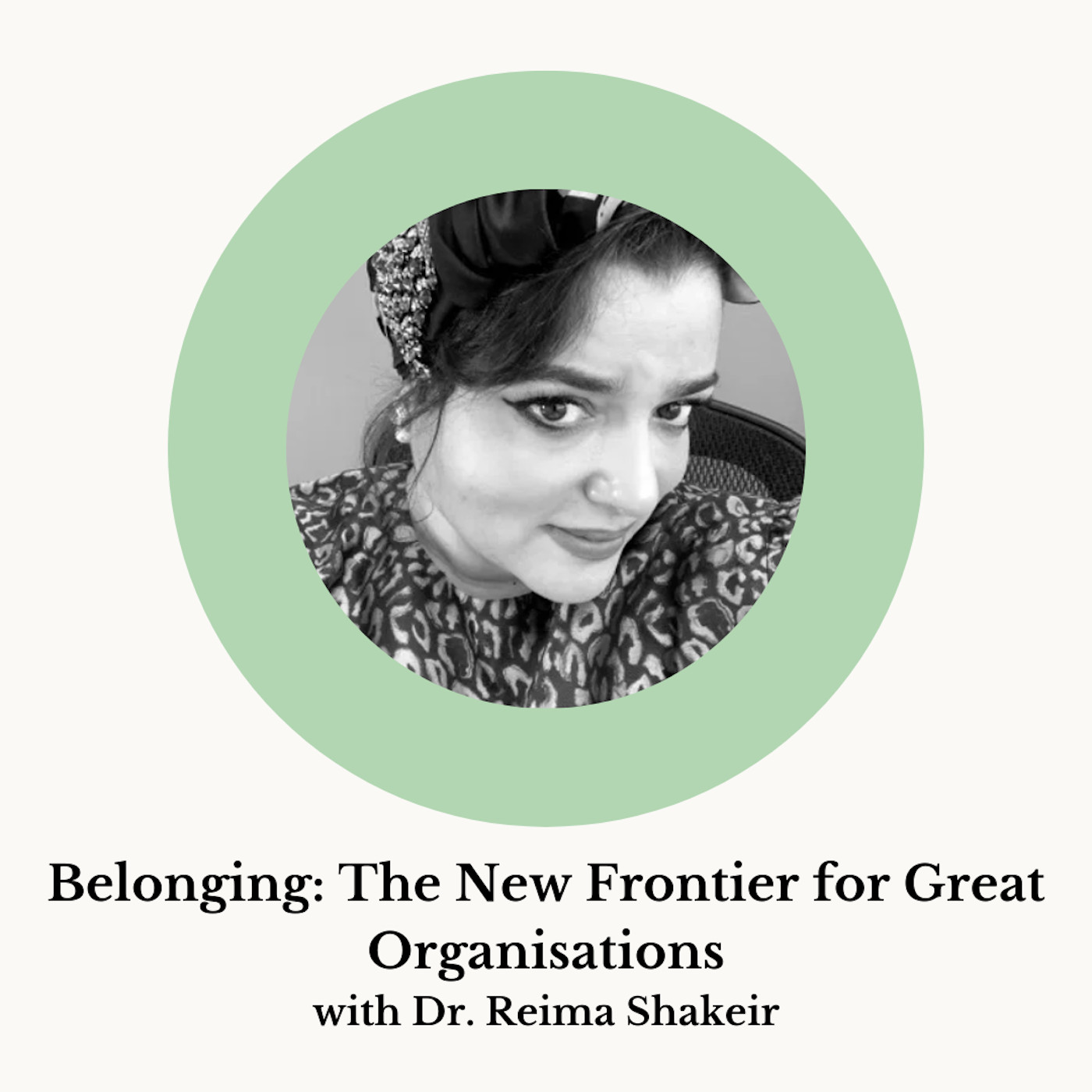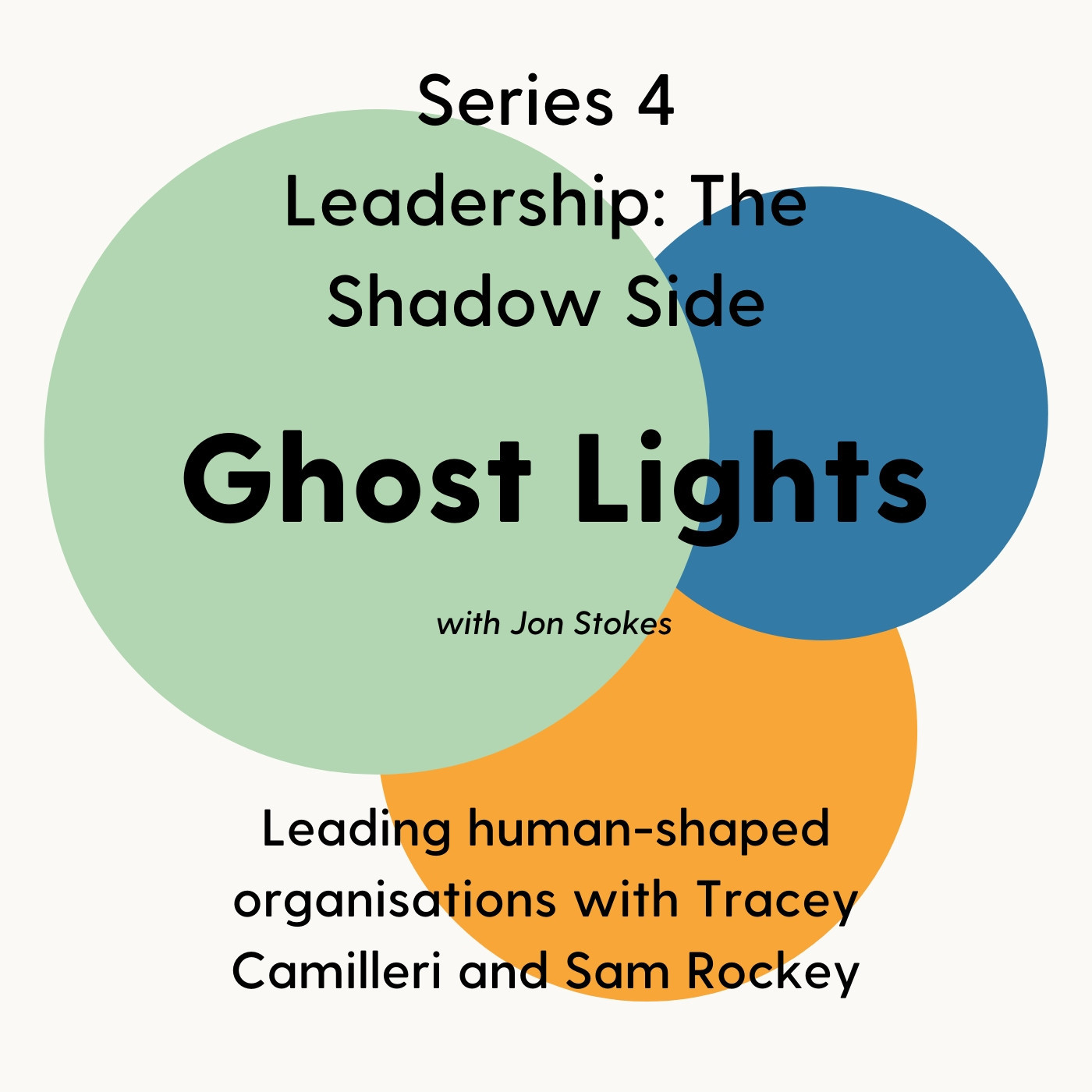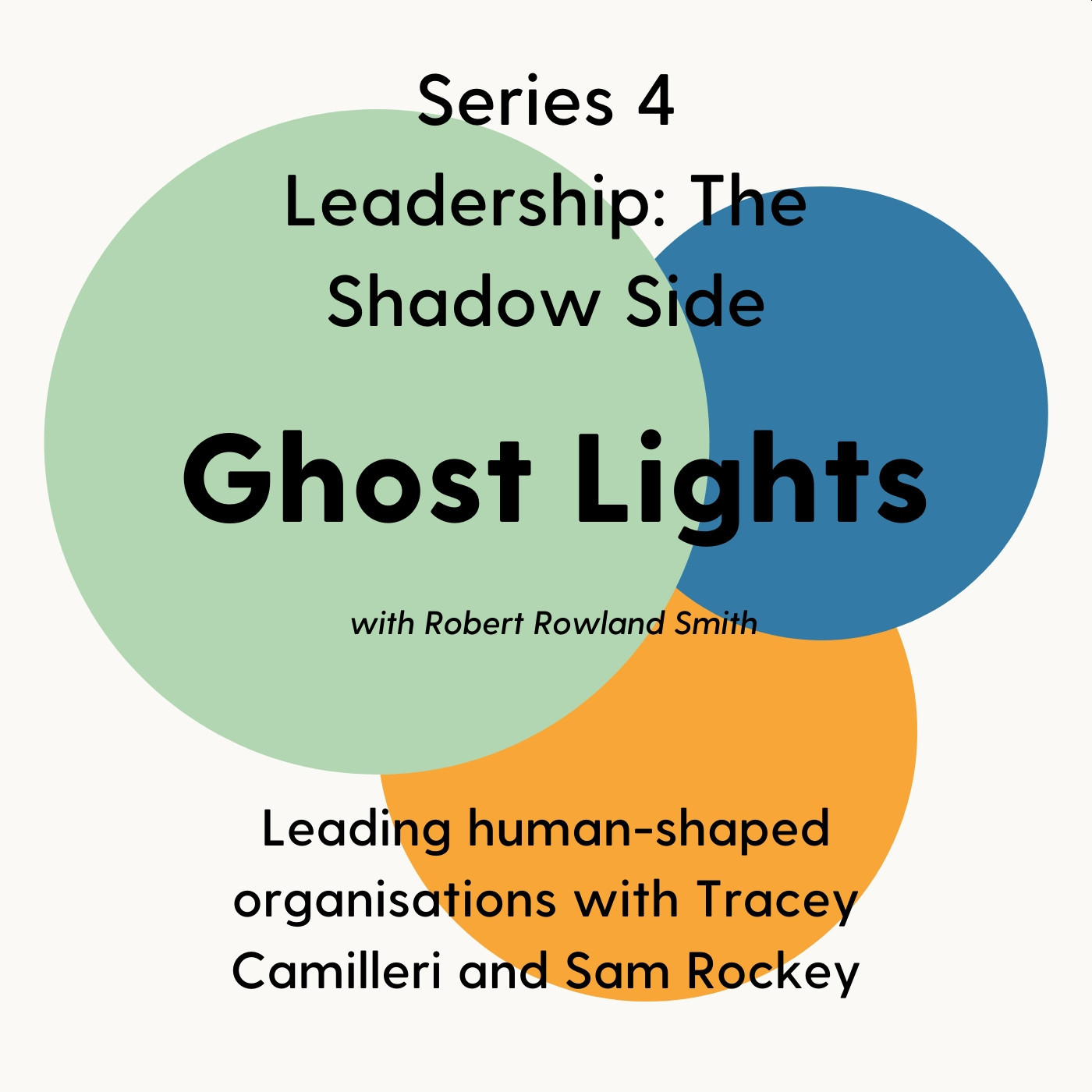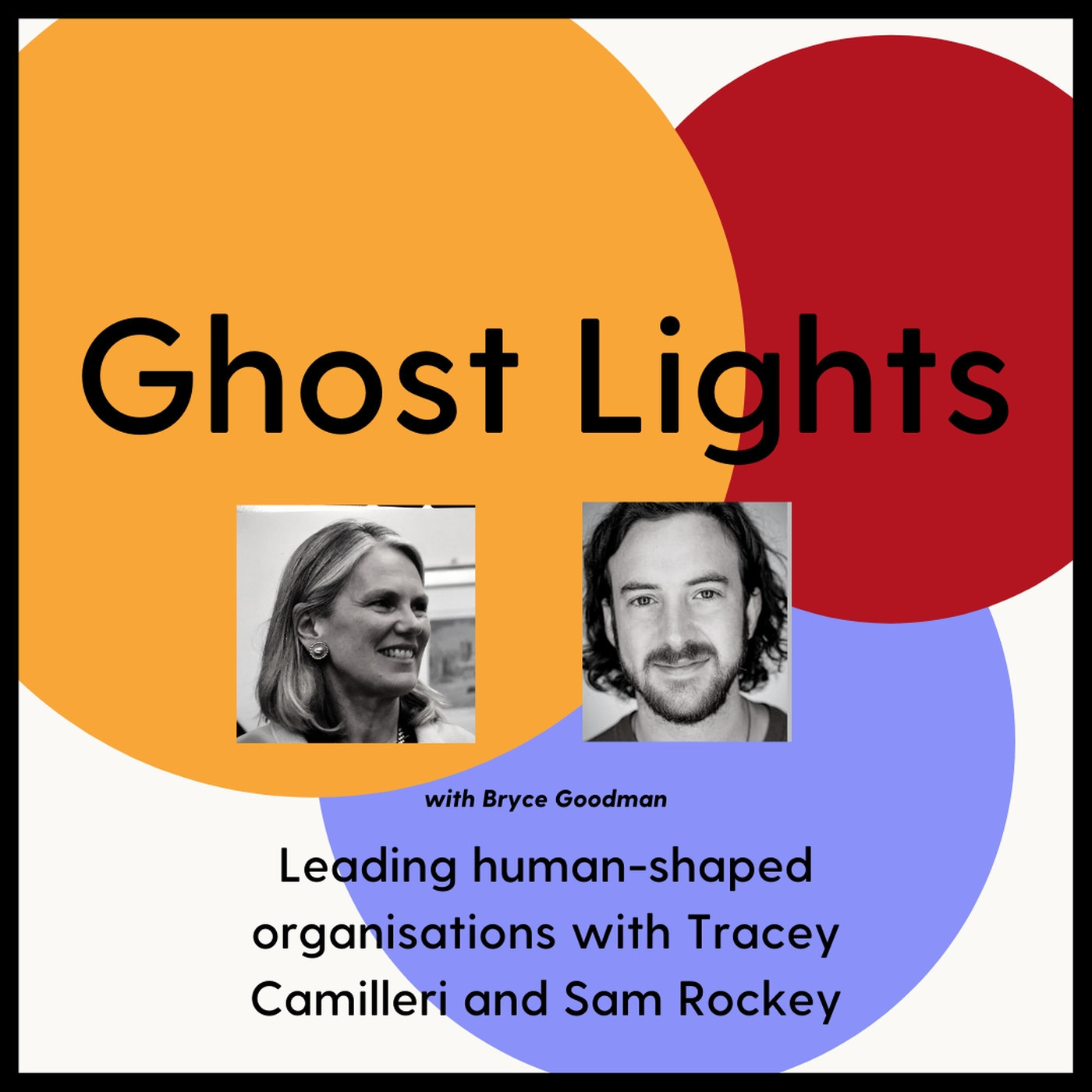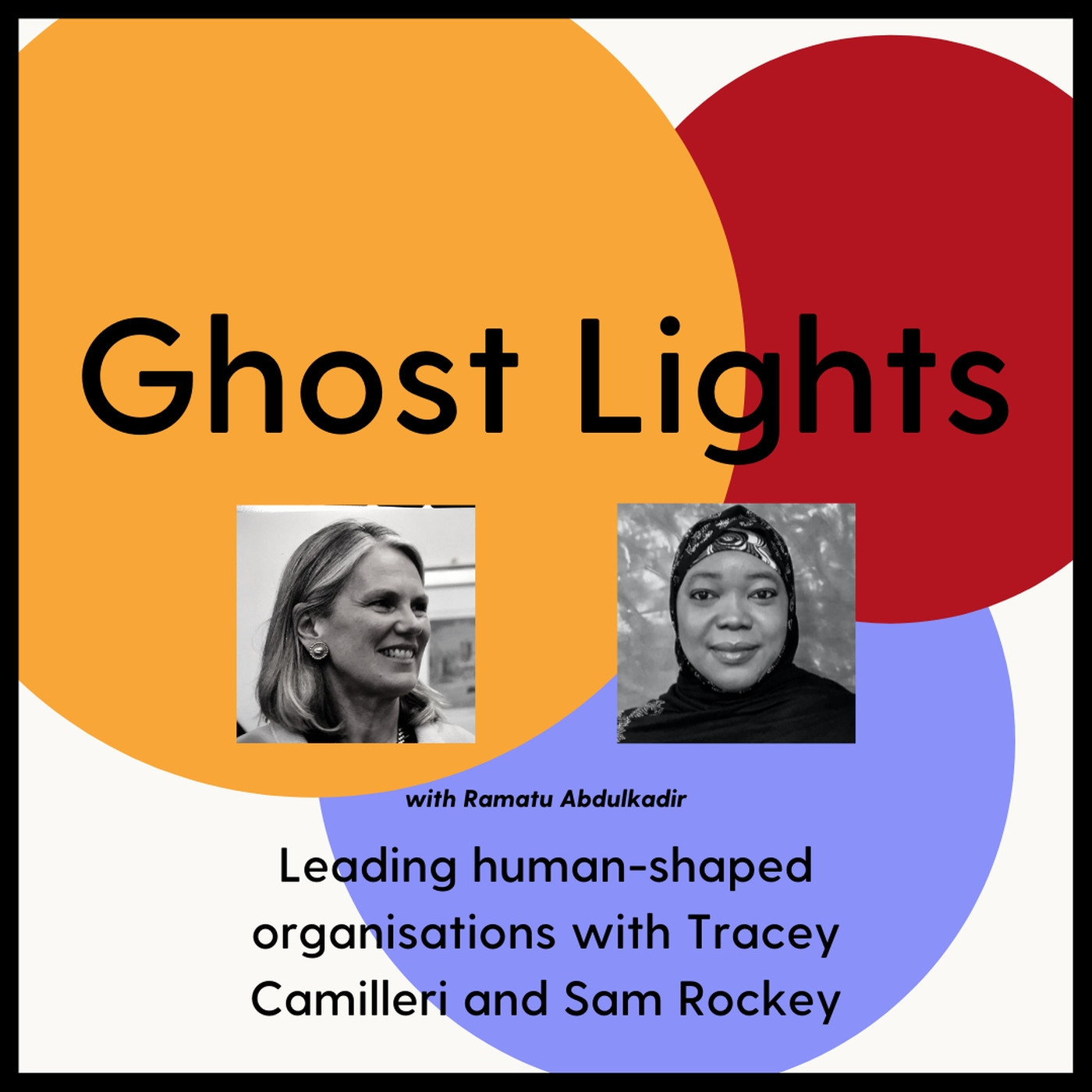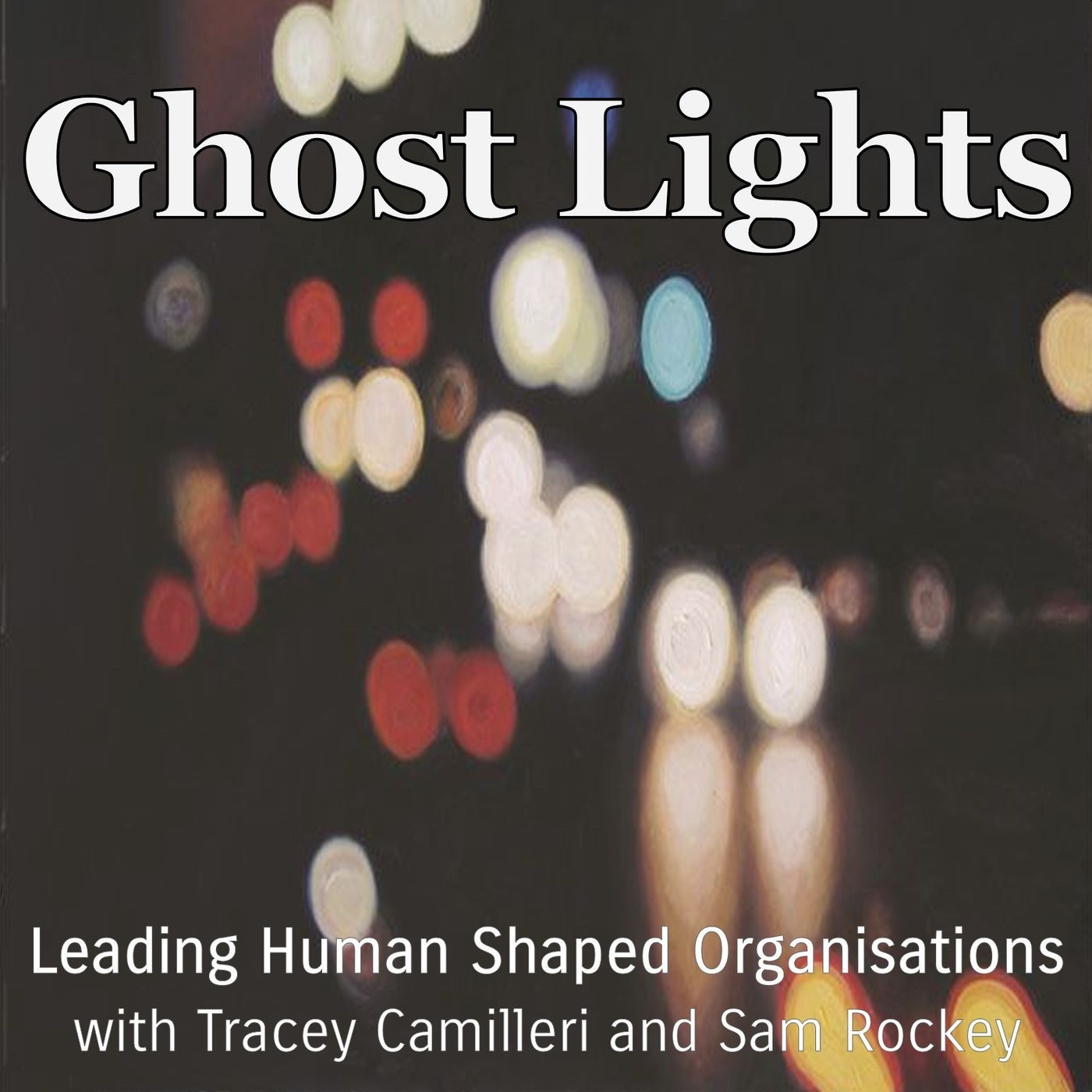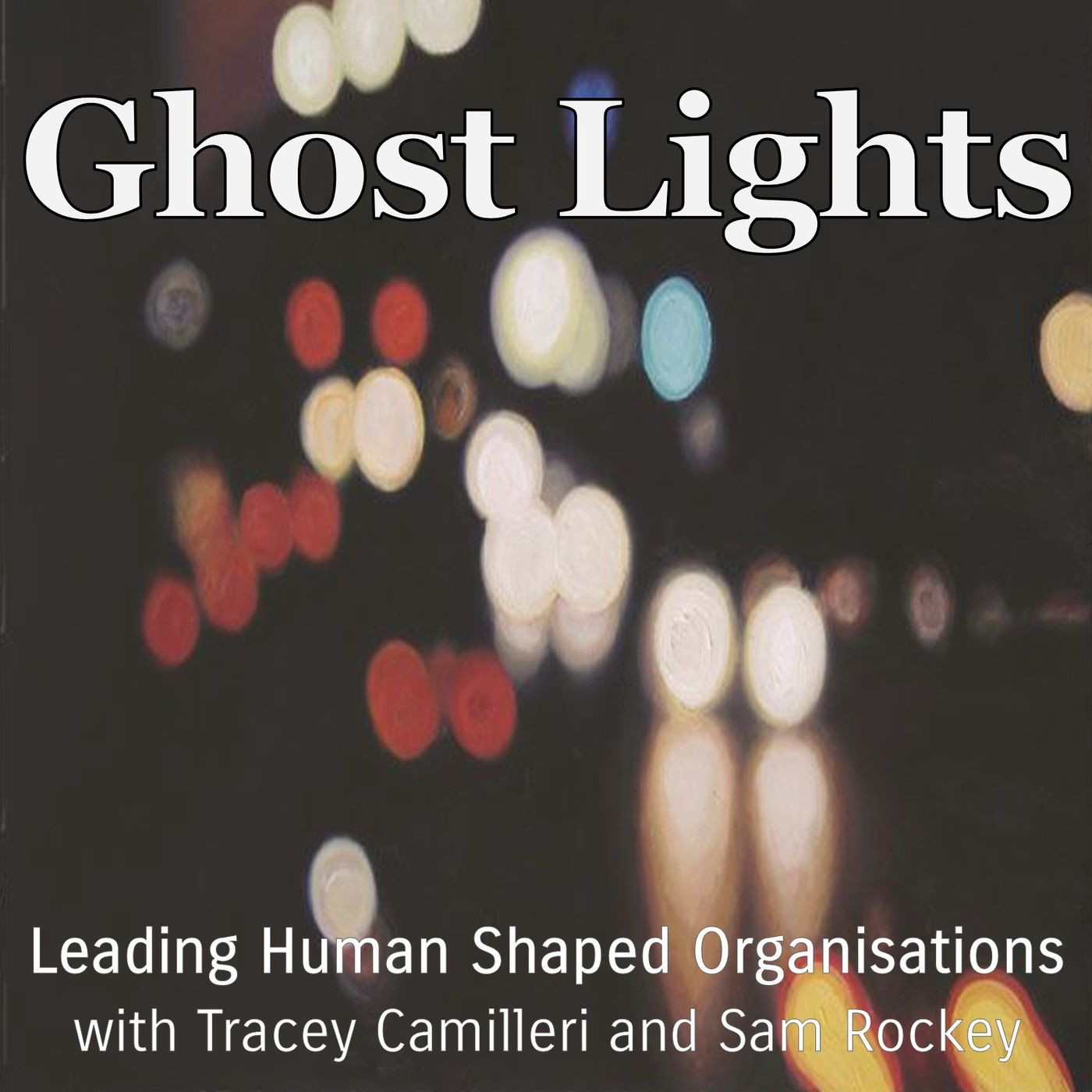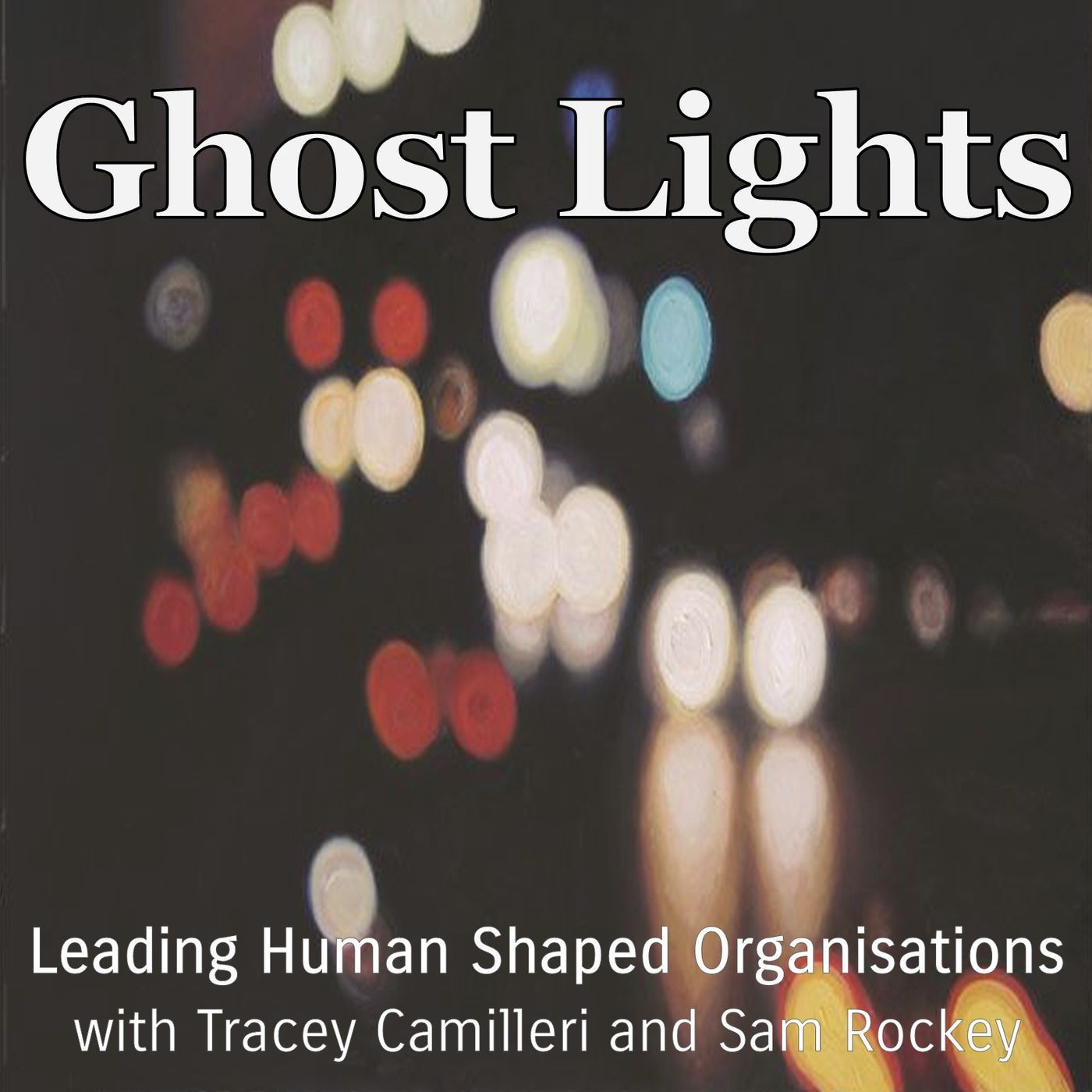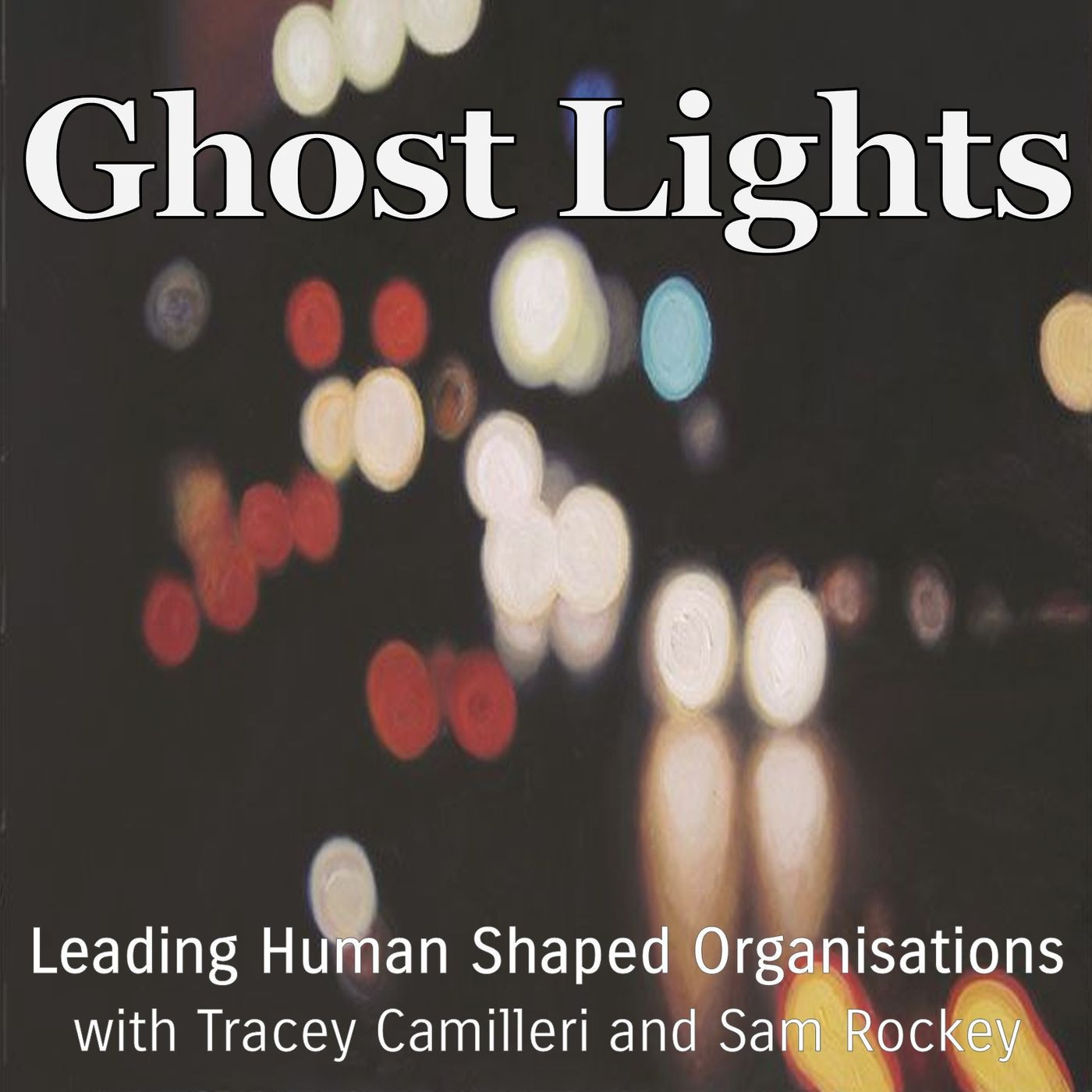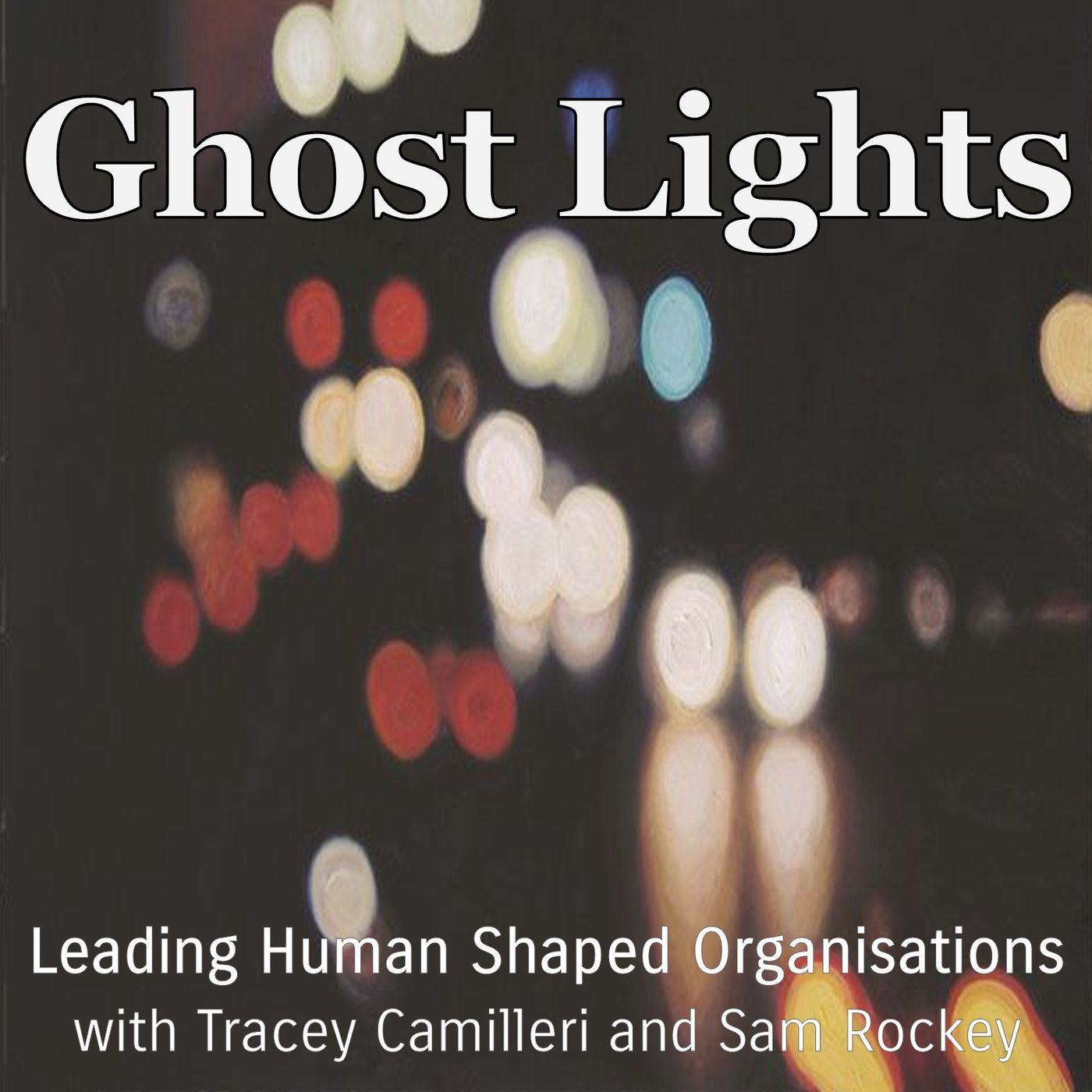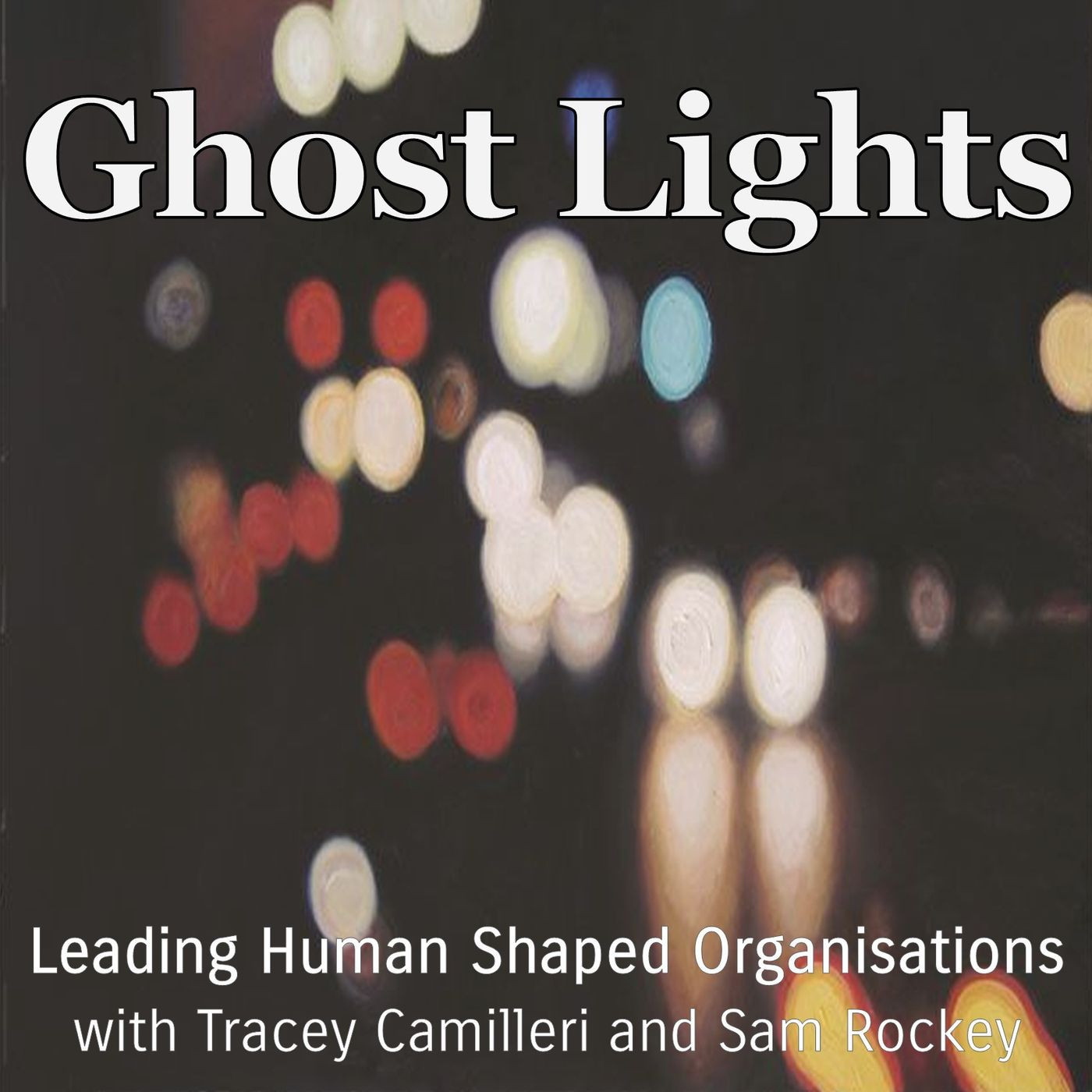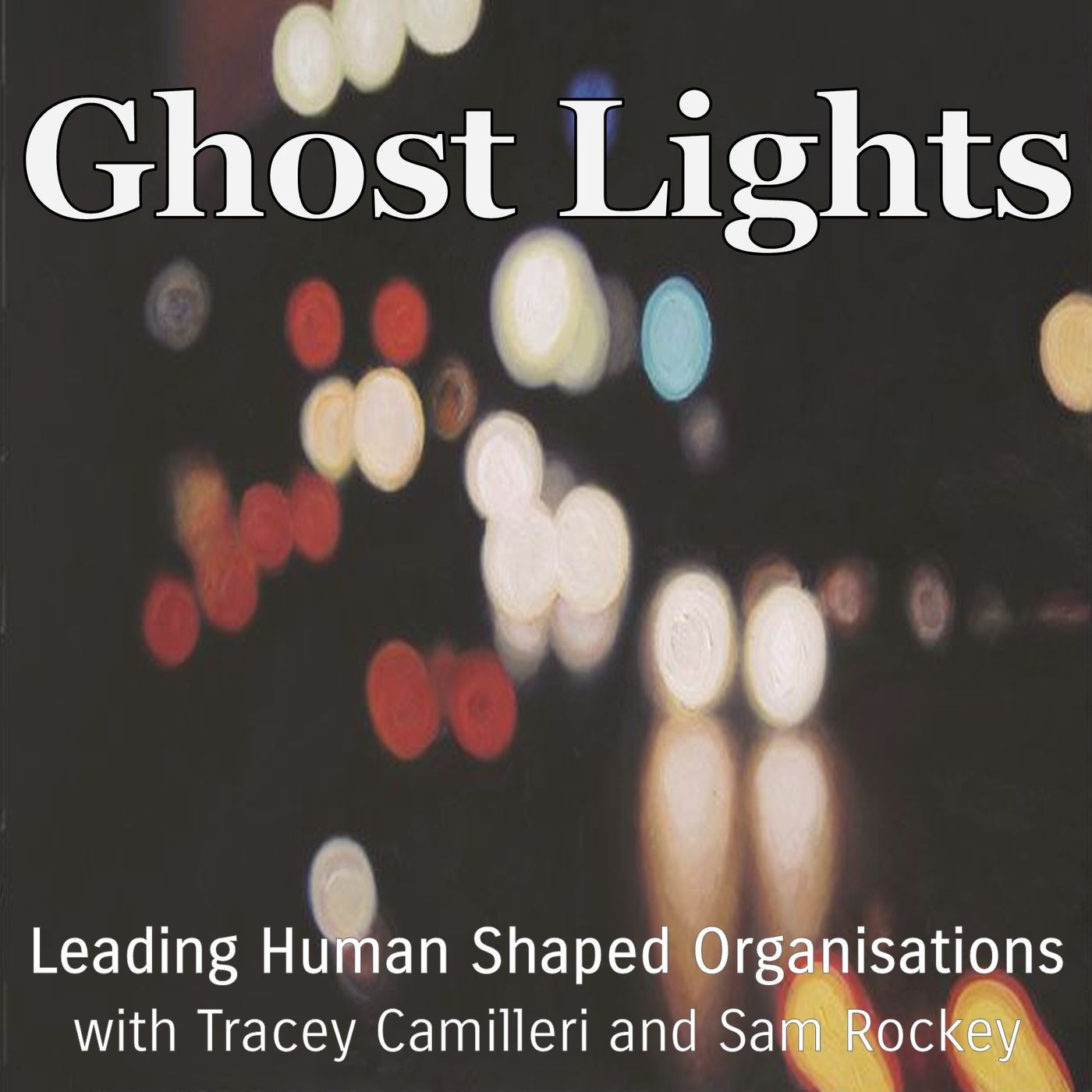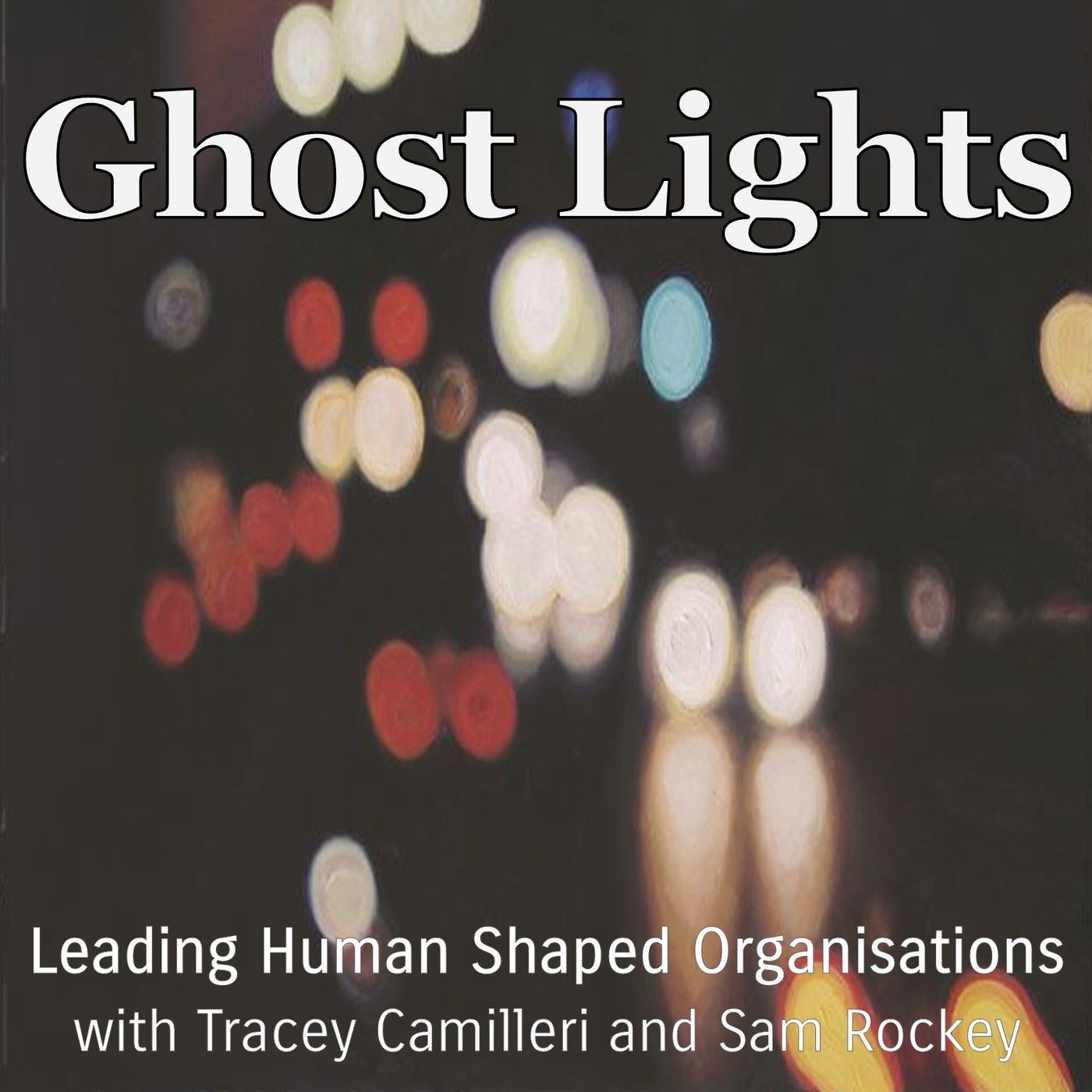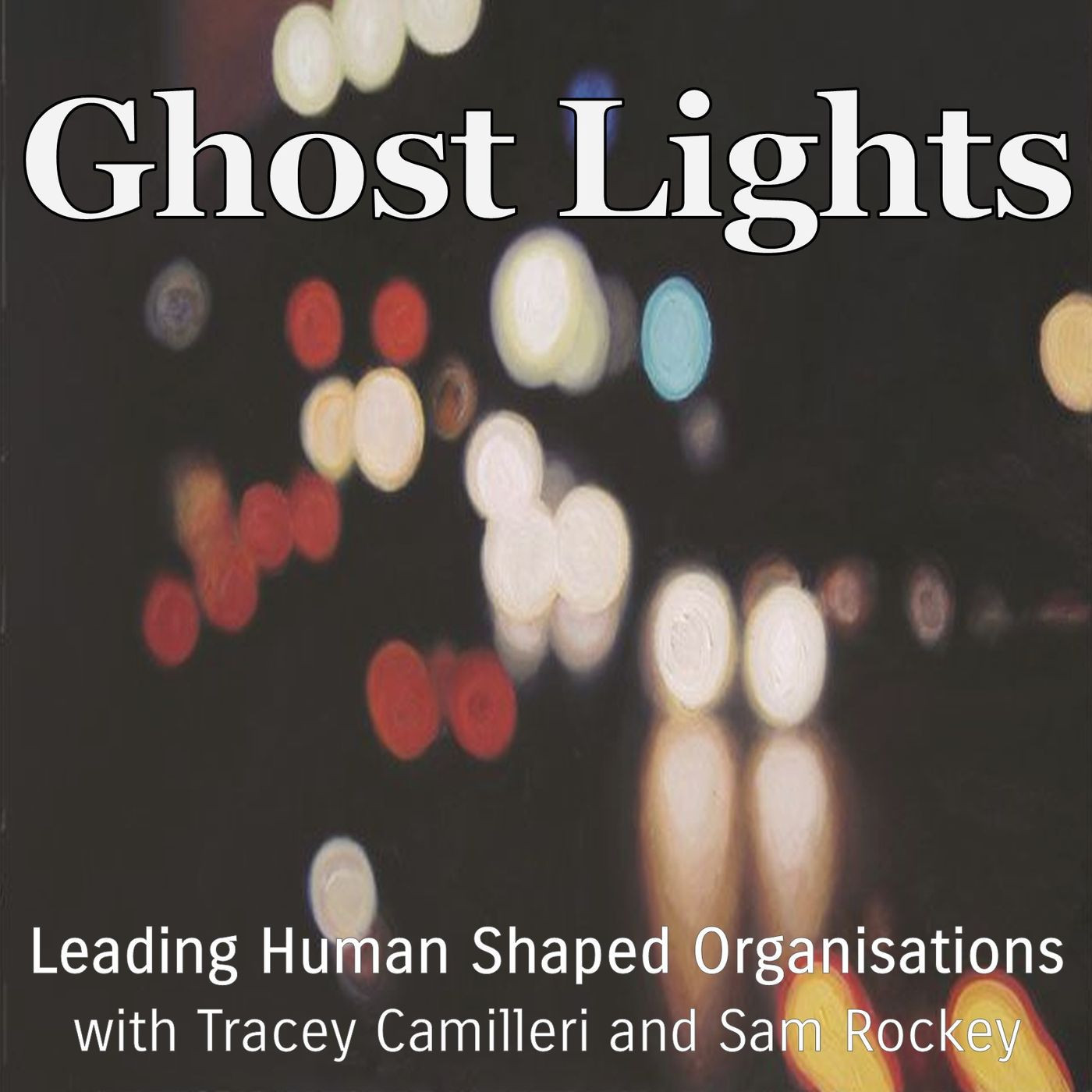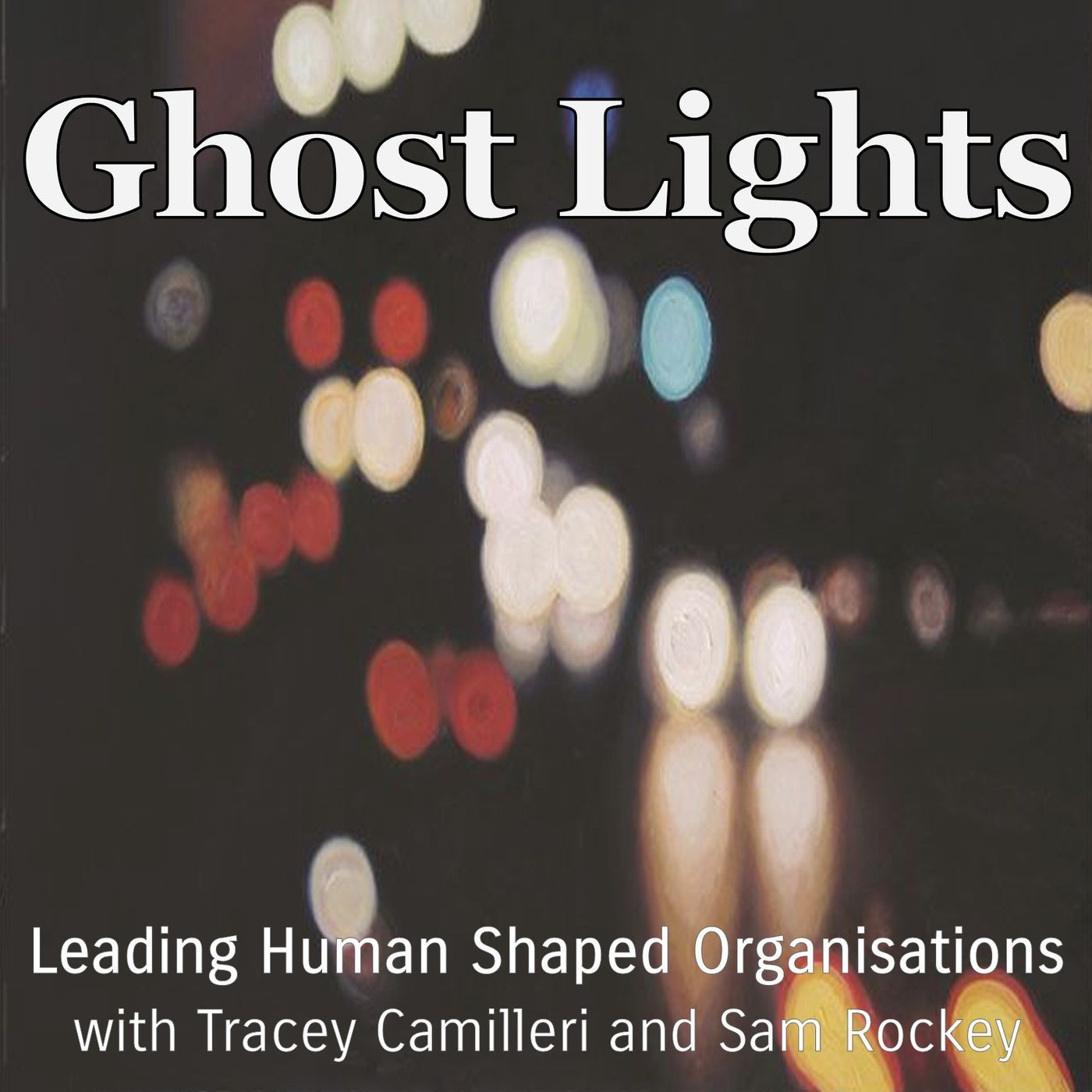Discover Ghost Lights from Thompson Harrison
Ghost Lights from Thompson Harrison

Ghost Lights from Thompson Harrison
Author: Solid Gold Podcasts #BeHeard
Subscribed: 1Played: 59Subscribe
Share
© Solid Gold Podcasts
Description
Welcome to Ghost Lights from Thompson Harrison
Hosted by Tracey Camilleri and Sam Rockey
Exploring how leaders can build ‘human-shaped organisations’ by learning from the humanities – that repository of all that is most human.
Join Tracey, Sam and their guests as they reimagine ways of creating enabling corporate and institutional environments within which everyone - from the most senior to the youngest recruit - can learn and thrive. They consider leadership at an angle rather than head-on – looking through the lens of philosophy, literature, art, history, psychology for new insights, language and approaches.
In each episode they will host a leading thinker or practitioner from the humanities, and reflect together on how their experience and wisdom can have relevance to those leading organisations through the pandemic.
Hosted by Tracey Camilleri and Sam Rockey
Exploring how leaders can build ‘human-shaped organisations’ by learning from the humanities – that repository of all that is most human.
Join Tracey, Sam and their guests as they reimagine ways of creating enabling corporate and institutional environments within which everyone - from the most senior to the youngest recruit - can learn and thrive. They consider leadership at an angle rather than head-on – looking through the lens of philosophy, literature, art, history, psychology for new insights, language and approaches.
In each episode they will host a leading thinker or practitioner from the humanities, and reflect together on how their experience and wisdom can have relevance to those leading organisations through the pandemic.
18 Episodes
Reverse
In this short podcast, Reima Shakeir reflects on the current state of belonging and inclusion in business and academia. Reima sees a shared sense of belonging as the hallmark of advanced societies and communities - and the key to employee retention and happiness. As she says, "People want to be heard and to be seen - and that’s it." She reflects on systems that are still nonetheless designed for exclusion and on those that exclude due to institutional carelessness or lack of awareness on the part of the leadership.
In this conversation, we explore what’s working, why and where there is pushback. What are some of the simple things that organisations are doing that make a difference? Reima reflects on the fear of getting things wrong, especially when it comes to language and the need to gather hard data to support changes in the system.
Finally, she sees real-world person-to-person connection as the new frontier for great organisations – and brands - where the creation of a sense of belonging makes perfect commercial sense as well.
Reima Shakeir is a lecturer at Wharton School of Business and Stern School of Business. Dr. Shakeir teaches Organizational Communication and Business and Society courses at NYU’s Stern School of Business. She also teaches research methodologies as part of the CLO (Chief Learning Officer) executive doctorate program at the University of Pennsylvania. Reima is also a Lecturer at Wharton and a partner at DEI Ready.
Research Interests include:
Impact Entrepreneurship and Inclusive Economy, Authentic Leadership, Diversity in the Business World, Equity in Higher Education, Impact Investing, Women and Identity Performance in the Public Space, Minority Women’s Lived Experiences in the Corporate World, Gender Studies, and Organizational Sociology. Connect with Reima on LinkedIn · Visit Thompson Harrison's website · Pre-order our book The Social Brain. Publication date: February 2023 · Website · LinkedIn · Solid Gold Podcasts #BeHeard
The problem with charismatic leaders.
What is charisma, how does it benefit leaders, and how can it be toxic?
Why do people follow charismatic leaders, even when it might not be good for them?
Why should leaders develop an inspirational leadership style rather than relying on charisma?
Jon Stokes is interested in how charismatic leadership can be toxic and the effect that it has on followers. He explores how leaders can inspire growth rather than dependence. He is an a an Associate Fellow at Oxford University's Said Business School and a founder of Stokes Jolly, a leadership consulting and advisory firm. He teaches and writes extensively about leadership, and coaches CEOs and their leadership teams.
Email Jon for a copy of his recent paper on charismatic leadership
mailto:js@stokesjolly.com Learn more about Jon and his work on the Stokes Jolly website · To learn more about toxic leadership · Connect with Gavin · Thompson Harrison - Helping Leaders Do What Matters Most · Website · LinkedIn · Solid Gold Podcasts #BeHeard
In my conversation with philosopher Robert Rowland Smith, we explore the dimensions of power. If power is the ability to make things happen in accordance with our will, why do some people crave more power than others? What are the real drivers of power? What do the philosophers say about power? Is power part of the human condition? Is power always bad? When can power be a force for good? This conversation takes us from current power struggles through to an unexpected conclusion all the while acknowledging that power is a movable and dynamic force. Connect with Robert · Connect with Sam · Connect with Tracey · Thompson Harrison - Helping Leaders Do What Matters Most · For more on Robert and his work · For more on the work of Prof Paul Gilbert mentioned in the podcast. · For an understanding of the power dynamics playing out in your organisation · Website · LinkedIn · Solid Gold Podcasts #BeHeard
How Humans can Surprise Themselves
Guest: Bryce Goodman, Chief Strategist for Artificial Intelligence and Machine Learning at the Department of Defense’s Innovation Unit.
Bryce works at the intersection of developing technologies and emerging societal needs. In this wide-ranging conversation he considers the governance challenges for business leaders as they strive to limit unintended consequences and operate responsible AI systems. He celebrates the work of interdisciplinary teams who bring a range of perspectives and skills to framing the problems to be solved: too often these questions are kicked down the line to programmers and engineers. Bryce is interested not only in the ethics of emerging tech but also in its ethical use – here he tells us how machine learning is being used to prevent illegal fishing, to monitor the health of coral reefs – and most delightful of all – to track the ‘voice’ patterns of whales to understand their grammar and dialect and finally, perhaps, to be able to talk back to them. The Ceti Project: Tracking the communication patterns of whales · The US Defense innovation Unit: tracking illegal ocean fishing · Defense Innovation Unit: Responsible AI Guidelines · Connect with Bryce · Website · LinkedIn · Solid Gold Podcasts #BeHeard
Dealing with Healthcare Challenges in Nigeria.
Ramatu Abdulkadir (Public Health Supply Chain Expert) is someone who well understands the challenges of getting in-date medicines to the right people at the right time in a pandemic.
She has spent a lifetime grappling at the hard edge of an under-invested in healthcare system in Nigeria.
She compares healthcare to the seamlessness, rigour and innovation of the manufacturing industry - this comparison came home to her as she visited a totally automated forklift factory and returned to ‘still the same old thing’ in a healthcare system that has hardly altered its methods during her whole career. It’s a magical conversation – quite literally so, as she describes how she was able to ‘turn waste into money’.
She is an optimist and a staunch believer in investing in the education of a new generation of supply chain experts to lead change into the future: 17 of her mentees graduated as supply chain experts at the end of 2021.
‘We’re just getting started!’, she says.
Ramatu is a seasoned Public Servant and a recognized expert in Public Health Supply Chain Management systems. As the Executive Secretary/CEO of the Health Supplies Management Agency (KADHSMA), Ramatu led the transformation of Kaduna State Health Supply Chain systems serving over 10 Million People of the State. In addition, Ramatu coordinated and supervised the upgrading of the first government-owned and operated Pharma-grade warehouse valued at around NGN 250 Million. Connect with Ramatu Abdulkadir · Ramatu's Website · Website · LinkedIn · Solid Gold Podcasts #BeHeard
This conversation between Tracey Camilleri and Enaam Ahmed Ali looks at the world through a gendered lens. Who better to do that than Enaam, 2022’s UN Women’s Representative for Climate Change and Technology? Enaam has spent 2021 talking to women around the world about the way in which climate change is impacting their lives, especially in poorer, developing countries. She talks powerfully about freedom for women – whether it’s the freedom to wear the headscarf, to stay at home and bring up children or to take on a leadership role outside the family - in her view it’s the act of choosing that is the crux of feminism, not what is chosen. In the conversation they range over questions like – what prevents more women now from thriving in tech businesses? What sort of leadership does the world need now? And why have all the corporate dollars sunk into D & I only got us so far? As a pragmatist and an entrepreneur – Enaam looks for action not words. In this podcast, she celebrates the small steps being taken by women around the world to build better foundations for the future.
Enaam Ahmed Ali is a development economist, intrapreneur, innovation manager, activist, and UN Women Representative 2022 for The Netherlands. Everything she does revolves around making people, organizations, and the planet better. Visit Enaam's website · The Dutch UN Women Website · The Dutch Council of Women · Connect with Enaam · Thompson Harrison, one of London's leading bespoke leadership development consulting firms. · Website · LinkedIn · Solid Gold Podcasts #BeHeard
Connecting Talent with Opportunity
Guest: Thami Schweichler (Makers Unite)
In this episode Tracey Camilleri talks to Thami Schweichler, the inspirational founder of Makers Unite, a sustainable clothing manufacturer based in the Netherlands that uses design as the mechanism to connect refugees with local people, businesses and ultimately with opportunity. The starting point for Makers Unite was to provide an environmental and social solution to the problem of exclusion - a 'win, win, win' model as he describes it. An inveterate optimist, Thami believes that everyone has a talent but that they deserve opportunity in order for that talent to flourish. He is in the business of creating those opportunities. He tells powerful stories of what has been achieved since the inception of Makers Unite by the newcomers he has had the privilege to meet and work with along the way. Changing the World is a Phone Call Away - Ted Amsterdam 2020, T Schweichler · Here is the link to Makers Unite · Connect with Thami · Thompson Harrison, one of London's leading bespoke leadership development consulting firms. · LinkedIn · Solid Gold Podcasts #BeHeard
Building an interconnected and thriving world for all.
With our Guest, Shruthi Vijayakumar.
In this episode Shruthi shares her own story of courage and change. As a young change-maker, Shruthi's work focuses on re-imagining how society can be designed to ensure a positive social impact for all.
Drawing on ancient wisdom and challenging commonly held assumptions and belief systems - Shruthi shares helpful insights and experience that leaders can use to refocus their own personal purpose.
Shruthi leaves us with a challenge on how to focus on the interconnectedness between all people, all nature and all living beings. If we look at the world from a point of interconnectedness rather than separation - then there is a chance of thriving for all. Website · LinkedIn · Solid Gold Podcasts #BeHeard
Why people don't care how much you know, unless they know how much you care
Dr. Alistair Mokoena (Google South Africa Country Director)
In this episode, Sam Rockey picks up on a conversation she started with Dr. Alistair Mokoena fifteen years ago that inspired her own work.
Drawing on his experience working for some of the leading companies in the world (Cadbury, Mondelez, Unilever, SABMiller, FCB and Ogilvy among them) as well as his academic focus, Ally shares his process for ongoing learning and reminds us that 'leaders who don't read, shouldn't lead.'
Ally shares what makes great organisations survive and thrive and talks about the importance of organisations going back to first principles - they exist to solve a need, and serve communities. For big organisations to deliver they need to work in partnership with small enterprises - taking an ecosystem approach ensures ongoing relevance. He warns against the tyranny of complacency and extends that to his own daily practice of putting together research 'cheat sheets'.
Ally provides a lens to the future and where true innovation will be coming from in the next decade and encourages us all to look for ways to unleash potential.
The books Ally mentions in the podcast are written by Tshilidzi Marwala "Closing the Gap" and "Leading in the 21st Century". Connect with Alistair on LinkedIn · Website · LinkedIn · Solid Gold Podcasts #BeHeard
And Other Strategies for Women Leaders
In this episode Kathryn Bishop (Director of Oxford Said Business School's Women Transforming Leadership Programme and The Oxford Women's Leadership Development Programme) talks about her new book 'Make Your Own Map'. The book is designed as a practical strategy guide for aspiring women. Kathryn explains some of the tools that she uses to help women to navigate their way to more satisfying futures. In the conversation with Tracey Camilleri, they reflect amongst other things on imposter syndrome, the particular quality of all-female environments, the masculine/feminine continuum when it comes to leadership styles and questions like - why it is that female voices often go unheard? Kathryn balances research with stories of the real women she has worked with - as well as giving us some gems of practical wisdom - such as the joys of the 'Not to Do List'. Oxford Women's Leadership Development Programme · Women Transforming Leadership Programme (Oxford Said Business School) · Make Your Own Map by Kathryn Bishop · Website · LinkedIn · Solid Gold Podcasts #BeHeard
Stop playing it safe
In this podcast Tracey Camilleri and Samenua Sesher explore the power of art to renew, re-engage and reinvigorate, especially during times of trauma. As the Founder of the digital Museum of Colour, Samenua reflects on some of the creative journeys of her contributors – and on her own visceral reaction to the Pitt Rivers Museum of anthropology in Oxford. Informed by her 'Respect Due' Gallery , she invites us all to take time out to honour those who have influenced our lives, especially our elders. Samenua exhorts even those who don’t think of themselves as being ‘creative’ or those who don’t work in the creative industries to try the untried, to change up their ‘unofficial board of advisors’, to dare to follow their imaginations. At times like these, we need to stop playing it safe. Samenua brings a much needed playful, joyful optimism to bear on our sombre times, believing that the development of the vaccine has shown us that ‘we can do things faster than we think’. ‘Joy is a wonderful place to work from’, she declares and leaves us with her 2020 playlist which, she says, gladdens the heart.
Samenua Sesher is a culture management consultant, a coach, an unconscious bias trainer and the founder and director of the Museum of Colour, exploring the creative journeys of British people of colour. She has experience of delivering multi-million-pound programmes and has fed into national cultural policy; set up and run a local authority culture service and lectured.
She was a 2008/09 Clore Fellow and was awarded an OBE for Services to the Arts in spring 2018 from the New Year’s Honours List.
Samenua is a People's Palace Project (PPP) Associate, member of the Advisory Board for The Art of Cultural Exchange and the is on the faculty for Oxford Cultural Leaders.
All her work is underpinned by a passionate belief in the power of creativity to transform us, challenge us and help to improve our understanding of the world, its people and ourselves. Digital Museum of Colour · The Pitt Rivers Museum of Anthropology at Oxford · Samenua's Spotify playlist · Website · LinkedIn · Solid Gold Podcasts #BeHeard
Language and Power - how does it work?
Dr. Ben Morgan
In this episode Tracey Camilleri talks to poet, academic, essayist and writer Ben Morgan looks under the bonnet at how language really works and why, when used well, it is effective. How has the recent outburst of joy around the vaccine and the US election been expressed? What is powerful about the way Joe Biden use language? What can we learn from the first lines of Hamlet? Why do certain metaphors work? What's the secret of getting the tone right? Why is Greta Thunberg such a skilful user of rhetoric? Join us for this enjoyable pick through the bones and muscles of the way we speak now.
Dr Ben Morgan is a writer, critic and tutor based in Oxford. He has published poetry widely, including a long sequence, 'Medea in Corinth' (Poetry Salzburg, 2018), which retells the Greek myth in modern forms. He is completing a book on Shakespeare and the idea of political justice for Princeton University Press. He also writes essays and reviews for a range of publications, as as teaching Shakespeare studies and English to undergraduates at Oxford and beyond, with a particular focus on visiting students. Website · LinkedIn · Solid Gold Podcasts #BeHeard
Taking (unmanned) flight
Dr Yoge Patel (Blue Bear Systems | CEO)
In this first of Series Two of our Ghost Lights Podcasts we focus on How to Begin.
Here we have the good fortune to talk to tech entrepreneur Dr Yoge Patel, CEO of Blue Bear Systems a UK leader in unmanned flight technology about how she began to grow her company.
She reflects on the developmental benefits of being in the middle of a family of 7 children and how that gave her with the opportunity to watch and listen as she was growing up – key capabilities for an entrepreneur.
In the conversation she reflects on a characteristic that unites all entrepreneurs – an impatient desire to change the status quo. Although she is a self-confessed ‘techie’, her approach to running a business has a solid human-based foundation, built on simple principles – or ‘mantras’ – and a non-hierarchical shared ethos.
Her secret of success?
Even after her mother told her as a child to ‘stop smiling, people will think you are simple’ – it is always to be herself, whether speaking to a cabinet minister or the youngest recruit in the office. She reflects on some of the advantages of the Covid lockdown amongst all the difficulty, ‘I love it when one of my most senior guys tells me that he has to break off a video call to put his two year old son to bed for a nap. We have won back time from our commute for our families.’
She is optimistic about the development of technology – believing that it must always contribute to broader societal value, always be a tool for the furtherance of mankind and that good emotional design is the foundation for good engineering. Connect with Yoge on LinkedIn · Website · LinkedIn · Solid Gold Podcasts #BeHeard
A conversation with Margaret Heffernan
In this wide ranging episode Tracey talks to Margaret Heffernan about the importance of paying attention to what is not being said - as well as learning to listen closely to others who have a very different perspective and experience of life. She ponders the limits and oversimplifying 'narrative tidiness' of stories told in the present about complex situations, as well as the blundering misuse of big data. She reflects on the inadequacy of what is still an essentially 19th century education system and the need for lifelong learning as we embark on Uncharted territory. She laments how many management processes seem designed precisely to constrain rather than enable experimentation, creativity and flexibility - the expression of our neuroplasticity.
Margaret refers back to her earlier book, 'How She Does It', as she talks about the different way in which women lead and establish systems in organisations. Thinking about an unknown future she hopes for a world where we can all be more curious, ask better questions, one where we are prepared to give up some of our comforts for the good of the next generation and, as leaders, tell the hard truths as we see them rather than settling for short term, easy lies that lead to the costly erosion of trust that we are currently living through. Engage with Margaret on her website · Connect with Margaret on LinkedIn · Website · LinkedIn · Solid Gold Podcasts #BeHeard
A Conversation with Professor Martin Kemp
Martin Kemp (Trinity College, Oxford | Emeritus Professor)
In this episode, Tracey Camilleri talks to Oxford art historian, author, academic and world expert on Leonardo da Vinci, Professor Martin Kemp. Originally trained as a scientist, Kemp speaks about the advantages of looking at the world through multiple lenses and disciplines. He considers the importance of authenticity and the crucial difference between fakes and the real thing. He reflects on the toppling of statues in response to Black Lives Matter (#BLM) and how some images, like that of Che Guevara, become icons. As an expert in looking and focused noticing, he discusses the current pandemic and how the virus is represented visually. Above all he reflects on the messiness of being human in a digital world of AI and computer simulation. Connect with Prof. Kemp on LinkedIn · Martin Kemp's website with links to his books, lectures and research · Website · LinkedIn · Solid Gold Podcasts #BeHeard
Learning from the interface between documentary making and psychotherapy
Sally Angel (Angelica Films | Creative Director)
In this episode Sam Rockey is in conversation with Sally Angel, Creative Director of Angelica Films, psychotherapist, Emmy and BAFTA Award winning Documentary Film maker.
Sally shares why psychotherapy and documentary film making have much in common - namely how both are about seeking out the stories that need to be told. Sally shares her experience of working on her award winning documentaries including the Holocaust documentary 'Night Will Fall', the friendship documentary 'Nothing like a Dame' and the behind the scenes 'Inside the American Embassy'.
She discusses her process - a combination of curiousity, listening to people's stories and tuning in what is going on in the world. She shares her experience about seeking out powerful stories and how stories find you - finding the stories that 'grab you by the back of the neck.' Sally describes the yearning we have for stories - the epic and the intimate at the same time and describes herself as an emotional activist. Films evolve, they have their own way of going into the world - they will be received as they will be received.
The lesson for leaders? Listening to people in a deep way, seeking out the stories that are waiting to be told, not being attached to the outcome, honouring the individual and their generosity in sharing their own story. Sally leaves with leaders with some helpful tools including a 'Matrix of Trust'.
'In summary, story is probably the best way to get people's attention.' More information on Sally Angel and the work she does · Website · LinkedIn · Solid Gold Podcasts #BeHeard
Robert sets a leadership thought experiment and discusses fear and love
Robert Rowland Smith, Philosopher, Author, Commentator and Consultant
Robert turns to philosophy to help leaders make sense of the experience with the pandemic. Robert talks about fear and love, the philosophical nature of uncertainty, the idea that the virus is a mirror to humanity. He wonders if this unthinkable state has connections with the notion of the sublime. Wordsworth's description of a mountain in the Lake District in The Prelude is both terrifying and full of beauty. Thus, the virus too - it has unleashed illness, death, personal and collective trauma but also beauty - birdsong in the streets, crystalline air, kindness.
During the pandemic, being asked the question, "how are you?" has taken on more meaning than in more settled times. In the course of a single self-isolated day, people run the whole gamut of the emoji board from fear to love - fear for our financial futures, love for the people we work with and our families who we worry about. Fear and love are traditionally opposed but seem to live side by side in the shadow of the virus. It is interesting how rarely words like love are spoken of in the normal course of corporate life. Learn more about Robert Rowland Smith · Website · LinkedIn · Solid Gold Podcasts #BeHeard
Being human in a digital context
Robin Dunbar (Emeritus Professor of Evolutionary Psychology | Magdalen College, Oxford University)
In this first episode, Tracey Camilleri talks to Prof Robin Dunbar of "Dunbar number" * fame. He is Emeritus Professor of Evolutionary Psychology at Magdalen College, Oxford University. Robin brings his years of research and discovery about what make us human and how these insights can help leaders make better "human-shaped" decisions. The conversations ranges across topics from the importance of triggering the endorphin system - through mechanisms such as laughter - and its positive effect on productivity, to more pragmatic advice on how leaders can better facilitate virtual meetings and maintain the "musical flow" of conversation to arrive at more satisfaction and connection for their teams.
* Dunbar's number (150) is a suggested cognitive limit to the number of people with whom one can maintain stable social relationships - relationships in which an individual knows who each person is and how each person relates to every other person. Learn more about Robin Dunbar · Website · LinkedIn · Solid Gold Podcasts #BeHeard


